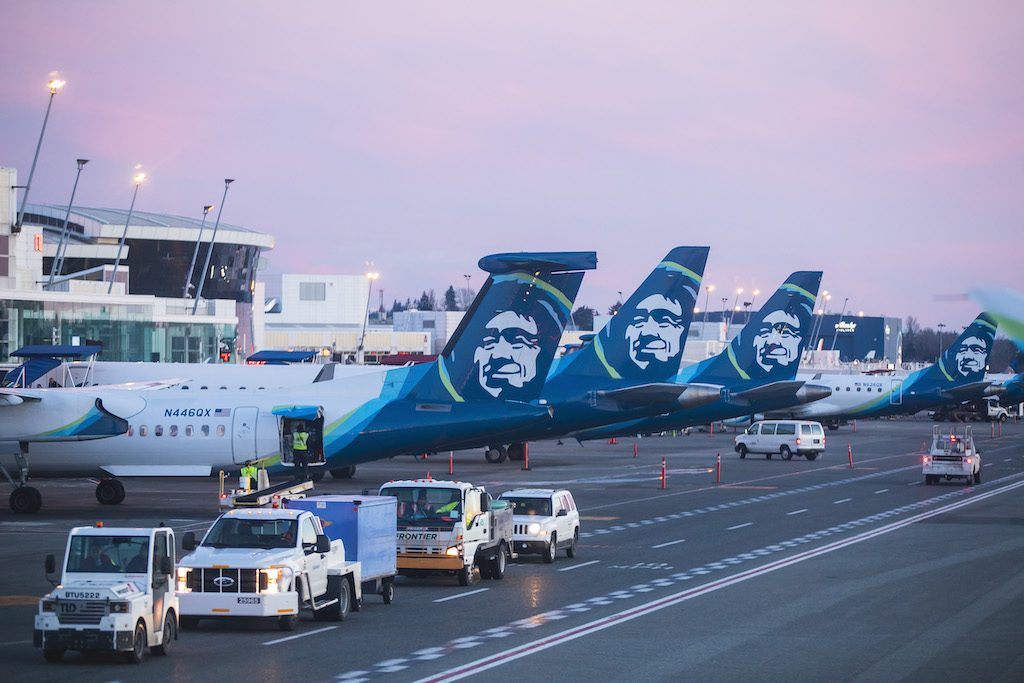Skift Take
Several airlines have extended the length of time passengers have to use travel credits. Are they trying to be nice? Or are they trying to make sure passengers use credits over time, and not all at once?
To keep cash, most U.S. airlines have pushed travel credits, not refunds, for travelers affected by Covid-19. It’s better than returning money to customers, but for airlines, those credits create their own liabilities.
Alaska Airlines told investors last week it has between $500 million and $600 million in outstanding travel credits, about 10 times more than usual. Perhaps more concerning, the airline does not know how consumers will use them.
Airlines executives typically do not divulge such details in public, so Alaska’s revelation offers insight into yet another hurdle carriers face during this pandemic. Skift was unable to determine how $500 to $600 million in credits compares with what other airlines are carrying, though other airlines have said in federal filings that they have given out more credits than usual. They have also said this makes it challenging to estimate future revenues.
Typically, customers may not rush to apply travel credits, or they may forget they have them, creating a breakage (a good thing) for the airline. But in these unusual circumstances, Alaska executives suspect most customers will redeem them. Travelers may try to use them at roughly the same time, which means the airline may not see significant fresh revenue for awhile.
“We don’t have a good window into how people are going to think about using e-wallet versus cash,” Shane Tackett, Alaska’s chief financial officer, said at the UBS Global Industrials and Transportation Conference. “But my expectation is people will access the credits at a higher rate than they had before in terms of form of payment for tickets.”
Alaska also is betting customers will want to use the credits as fast as impossible, which could hurt summer and fall revenues, even if there’s recovery in air travel demand.
“It’s still fresh in their mind that they had those tickets and they don’t any longer and they’ve got value for them,” Tackett said. “And as they think about replacing those trips, I just have an anticipation that there’s going to be a relatively large share of tickets that we sell for credit. We don’t have an estimate at this point. It’s kind of hard to see right now because we’re just seeing cancellations and refund activity come down to a normal level.”
Pricing Decisions
Generally, airline pricing is a function of supply and demand, with prices rising on popular flights, and falling on less popular ones. But Tackett said the preponderance of airline credits could distort the market.
If airlines know customers are paying with credits, not cash, they may not want to discount so much. Airlines may not want to be in a position where a $400 credit from a single canceled journey is enough to pay for two flights rather than one.
“We’re not just pricing under sort of normal circumstances where the vast majority is cash sales,” Tackett said. “There may be a disproportionate number for a period of time of credit sales. And I don’t know how that will totally impact our pricing decisions.”
But Tackett admitted airlines probably cannot control market dynamics. If the seats are empty, he said, airlines will fill them.
“It’s a very competitive industry,” he said. “And to the degree that there are seats out there that are empty … I’ve never seen that result in anything but pretty low pricing.”
Worst Case
This month, Alaska expects its cash burn to be about $200 million, with expenses far outpacing revenue. But by the end of the year, Alaska wants to get its burn rate to zero.
But if more customers use credits than the airline expects, Tackett said Alaska could fall short.
“I guess the worst case would be not very much demand returns and the demand that does come back, wants to use all credit and not pay with cash,” he told analysts. “That would be mathematically hard to overcome.”
The Daily Newsletter
Our daily coverage of the global travel industry. Written by editors and analysts from across Skift’s brands.
Have a confidential tip for Skift? Get in touch
Tags: alaska airlines, coronavirus, covid-19, refunds, vouchers
Photo credit: Alaska and Horizon Air jets and turboprops on the ramp. Alaska Airlines
